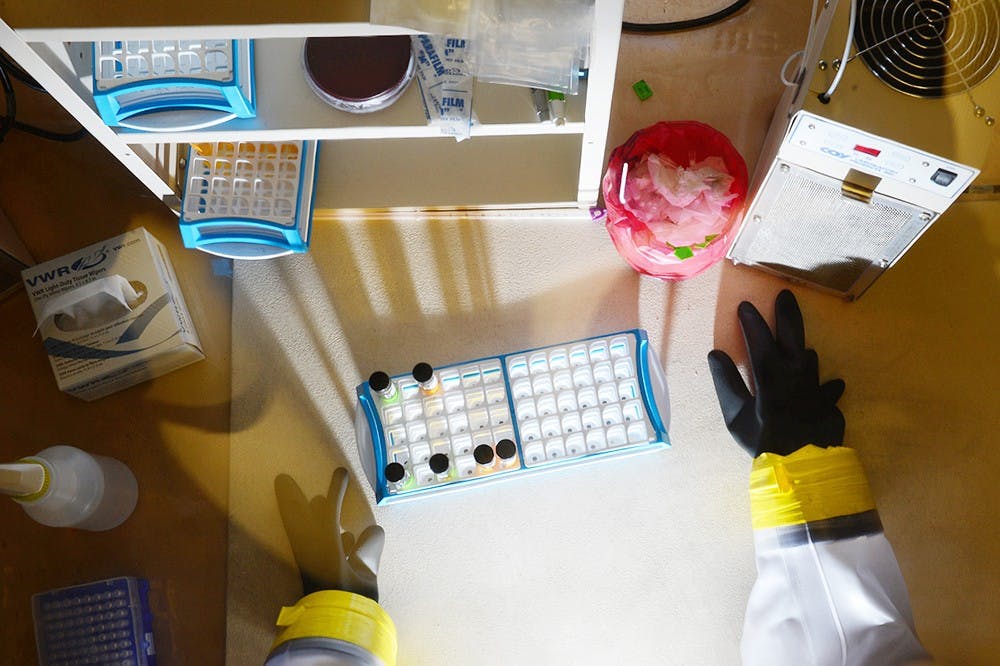Gov. Roy Cooper signed a $1.5 billion coronavirus relief package this week that will allocate $29 million to the North Carolina Policy Collaboratory at UNC for research into COVID-19 treatment and testing.
UNC is among five North Carolina universities identified in this bill to receive funding for coronavirus research. The relief package also gave research funding to Duke University, Wake Forest University, East Carolina University and Campbell University. A combined total of $85 million will be allocated to the five schools.
Rep. Graig Meyer, D-Caswell, Orange, is among the members of the General Assembly who helped approve this relief package.
“The goal is to have our academic and medical research centers determine the best public health responses and to develop more testing and treatment for this virus,” Meyer said. “We need the brilliant research of the state to help navigate until we get a vaccine.”
Chancellor Kevin Guskiewicz said this funding will allow the university to continue its coronavirus research, noting the recent recognition UNC has received for its efforts. Remdesivir, a COVID-19 treatment developed in partnership with UNC researchers, has showed promising results in an international clinical trial.
“We were recently named the top university in the nation for coronavirus research, and will continue this fight with the same focus and resolve that led our scientists to help develop the first effective treatment for COVID-19,” Guskiewicz said via an email statement from UNC Media Relations. “This appropriation will enable UNC-CH and our fellow UNC System institutions to deploy their researchers and resources to find more solutions for North Carolinians.”
The N.C. Policy Collaboratory, which the General Assembly established in 2016, disseminates and funds resources for research related to the environment and natural resource management across the state.
Jeff Warren, executive director for the Collaboratory, described the importance of the initiative’s efforts in responding to the current pandemic.
“Our greatest issue is lab throughput — we are working at capacity, and we need more staff and equipment to take these novel medicinal approaches and see if they work,” Warren said. “This is such a time-sensitive issue, and a lot of times the purchasing approach can take many months.”




